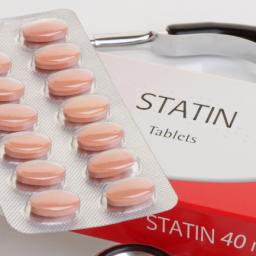A DESEASE MODIFYING DRUG, LECANEMAB, IS NOW AVAILABLE FOR ALZHEIMER’S DISEASE
C. H. van Dyck from Yale talked about the diagnosis and treatment of Alzheimer’s dementia.
New brain imaging data have revealed that Lecanemab cannot only highly significantly delay memory decline but also improve PET measures of amyloid and tau. Early illness in those with mild cognitive impairment (MCI) can be detected; results indicate better effects of treatment Lecanemab in those with earlier and milder illness compared to those with more severe illness.
Pimavanserin Prevents Relapse in Patients with Dementia-Related Psychosis

At a recent scientific meeting, Erin Foff of Acadia Pharmaceuticals Inc. described a study of pimavanserin (a selective serotonin inverse agonist/antagonist at 5-HT2A receptors) in dementia-related psychosis. Pimavanserin is currently approved in the United States for the treatment of hallucinations and delusions associated with Parkinson’s disease (PD). There is currently no Food and Drug Administration–approved treatment for dementia-related psychosis.
Enrolled patients had moderate-to-severe psychosis associated with Alzheimer’s disease, Parkinson’s, dementia with Lewy bodies, vascular dementia, or frontotemporal dementia. After a 12-week open label phase with flexible dosing and a target dosage of 34mg/day, 217 of the participants with a good response to pimavanserin were then randomized to continue pimavanserin or switch to placebo. The study was stopped early when a prespecified interim analysis revealed that pimavanserin was clearly superior to placebo. There was a more than 2.8-fold reduction in risk of relapse with pimavanserin compared to placebo in the double-blind period. Those on higher doses of 34mg/day showed a more than 3.4-fold reduced risk of relapse. Acadia will seek FDA approval for pimavanserin for the treatment of dementia-related psychosis.
Naturally Occurring Lithium in Texas Drinking Water Reduced Alzheimer’s Mortality Rates
Several studies have found that trace levels of lithium that naturally occur in the drinking water of certain regions are associated with reductions in dementia compared to regions with less lithium in the water. The latest such study found that higher trace levels of lithium in certain Texas counties were associated with less mortality from Alzheimer’s disease compared to Texas counties with lower levels of lithium in the water.
The research by Val Andrew Fajardo and colleagues was published in the Journal of Alzheimer’s Disease in 2017. Fajardo’s team obtained 6,180 water samples from 234 of Texas’ 254 counties. They also calculated that there was an increase in the Alzheimer’s mortality rate from the period 2000–2006 to the period 2009–2015. However, regions with higher trace levels of lithium were negatively correlated with this increase, suggesting that the lithium in the water had a protective effect on people in those counties.
The researchers controlled for gender, race, education, rural living, and air pollution. Physical inactivity, obesity, and type 2 diabetes seemed to be confounding factors. Obesity and type 2 diabetes were positively correlated with Alzheimer’s mortality and negatively correlated with lithium levels in drinking water, meaning that it is possible that lithium also protects against these conditions.
Coenzyme NAD+ Postpones Aging in Mice and Worms
 Aging cells seem to lose their ability to repair DNA, while the mitochondria that power cells also become less reliable. A coenzyme called NAD+ may be able to postpone these changes. NAD+, which is found in all living cells, naturally decreases with age.
Aging cells seem to lose their ability to repair DNA, while the mitochondria that power cells also become less reliable. A coenzyme called NAD+ may be able to postpone these changes. NAD+, which is found in all living cells, naturally decreases with age.
A 2016 article by Evandro Fei Fang and colleagues in the journal Cell Metabolism reports that giving mice and roundworms supplemental NAD+ postponed cell aging and extended the lives of these animals.
The researchers hope this research might eventually help patients with Alzheimer’s and Parkinson’s’ diseases.
Antipsychotic Drug Pimavanserin Seems to Reduce Psychosis in People with Alzheimer’s
 The antipsychotic drug pimavanserin was approved by the US Food and Drug Administration last year as a treatment for hallucinations and delusions in Parkinson’s disease. Now it looks as though it may also help people with Alzheimer’s disease. Pimavanserin works differently than other antipsychotic medications—a selective serotonin inverse agonist, it acts at serotonin HT2A receptors to produce effects opposite to those that serotonin would produce at the same receptor.
The antipsychotic drug pimavanserin was approved by the US Food and Drug Administration last year as a treatment for hallucinations and delusions in Parkinson’s disease. Now it looks as though it may also help people with Alzheimer’s disease. Pimavanserin works differently than other antipsychotic medications—a selective serotonin inverse agonist, it acts at serotonin HT2A receptors to produce effects opposite to those that serotonin would produce at the same receptor.
In a trial of 181 patients with Alzheimer’s and psychotic symptoms, those who received 34 mg/day of pimavanserin had a significant improvement in psychotic symptoms in six weeks compared to those who received placebo.
Over 12 weeks of treatment, pimavanserin did not impair cognition, as atypical antipsychotics can do.
Pimavanserin was well tolerated. The most common side effects were falls, urinary tract infections, and agitation. Like other atypical antipsychotics, the drug carries a box warning from the FDA that there is an increased risk of death when the drug is used to treat older people with dementia-related psychosis.
The FDA has designated pimavanserin a breakthrough therapy and is giving it priority review. These designations can speed up the development and review of a drug and are granted when a drug looks like it will be substantially better or safer than existing treatments for a serious condition.
Transcranial Direct Current Stimulation Improved Picture-Naming in People with Dementia
In a study of 12 people with mild Alzheimer’s disease or frontotemporal dementia, transcranial direct current stimulation (tDCS) improved the participants’ abilities to name an object in a picture more than did a sham stimulation. TDCS is a treatment in which an anode and a cathode electrode placed on the skull are used to deliver a steady low level of electrical current to the brain. There is currently no treatment available to specifically target symptoms of dementia such as forgetting words.
The research by Howard Chertkow and colleagues was presented at the 2017 meeting of the American Academy of Neurology. In the study, participants received either 30 minutes of anodal tDCS targeting the parietal lobe of the brain or a sham stimulation.
They also received training in picture-naming. The participants were evaluated before stimulation, at the final stimulation session, two weeks after stimulation, and two months after stimulation. Compared to those who received the sham stimulation, those who received real tDCS improved at picture-naming, and maintained that improvement for two months.
Those who received tDCS also performed better at naming new pictures not included in the training, and were better able to remember a string of digits than those who got the sham stimulation.
Statins Have Many Benefits
 Patients with mood disorders and elevated lipids, cholesterol, or triglycerides can get several benefits by taking statin drugs. Patients with depression are at increased risk for cardiovascular disease, heart attack, and stroke, and statins can lower these risks. Statins lower cholesterol and triglycerides.
Patients with mood disorders and elevated lipids, cholesterol, or triglycerides can get several benefits by taking statin drugs. Patients with depression are at increased risk for cardiovascular disease, heart attack, and stroke, and statins can lower these risks. Statins lower cholesterol and triglycerides.
Compared to women not taking statins, women taking this class of medications have a lower risk of depression. Men taking statins have a lower incidence of depression following a heart attack than men who are not taking statins.
Several studies over the past two decades have suggested that statins can also decrease the incidence of Alzheimer’s disease, though a 2017 article by Julie M. Zissimopoulos and colleagues in the journal JAMA Neurology suggested the effectiveness of statins in preventing Alzheimer’s may depend on the race and gender of the person taking them. People with depression are at increased risk for Alzheimer’s.
Editor’s Note: Given these many benefits, it may be a good idea for patients with depression or bipolar disorder and high lipid levels to talk to their physician about whether statins would be a helpful treatment for them.
Medical Device May Treat Alzheimer’s Disease
A recently completed clinical trial suggests that NeuroAD, a treatment system that combines transcranial magnetic stimulation and cognitive training targeted at brain regions affected by Alzheimer’s disease, may be effective at treating mild to moderate cases of the illness.
Neuronix Ltd, the company that produces the device used to deliver transcranial magnetic stimulation in the trial, plans to seek Food and Drug Administration approval for NeuroAD. It would be the first device approved for the treatment of Alzheimer’s in the US. The device is already in use in Europe and Asia.
In the clinical trial, 131 patients received six weeks of the NeuroAD treatment or a sham treatment used as a comparison. Those participants who received the real intervention performed better on an assessment of Alzheimer’s and experienced minimal side effects.
In transcranial magnetic stimulation, a non-invasive procedure, magnets placed near the skull stimulate electrical impulses in the brain. This activates neurons, releasing excitatory transmitters and brain-derived neurotrophic factor (BDNF), which is important for new synapse formation and long-term learning and memory.
Editor’s Note: This editor (Robert Post) has long advocated the use of repeated transcranial magnetic stimulation (rTMS) with simultaneous cognitive behavioral or other positive therapy to activate and enhance specific neural circuits and relieve depression. The trial of NeuroAD adds evidence of the positive effects of this approach in domains other than depression. Cognitive training enhanced by rTMS may be helpful with a variety of cognitive difficulties.
Microdoses of Lithium May Stabilize Cognition in People with Alzheimer’s
Several researchers have found that lithium has some value in fighting dementia. The researcher Lars Kessing has published several studies showing that people taking clinical doses of lithium for bipolar disorder have a lower incidence of dementia in old age.
In 2011, another researcher, Oreste Vicentes Forlenza, reported that a year of low-dose lithium (typically around 300mg/day) slowed deterioration in people with mild cognitive impairment compared to placebo.
In an article published in the journal Current Alzheimer Research in 2013, researchers led by Marielza Andrade Nunes reported that very small doses of lithium (more than a thousand times lower than doses used to treat mood disorders) also improved mild cognitive impairment in people with Alzheimer’s disease.
In Nunes’ study, participants with Alzheimer’s disease were randomly assigned to receive either 300 micrograms of lithium daily or a placebo. Beginning at three months of treatment, those receiving the microdoses of lithium showed stable performance on a common Alzheimer’s evaluation tool that measures how well patients remember, recall information, and follow directions; while those taking placebo got worse.
This continued over the 15 months of the study, with the difference between the two groups intensifying over time—those taking placebo got worse, while those getting the microdoses of lithium remained stable.
There were no complaints of side effects from the microdoses of lithium, and participants showed no sign of impairment to their kidney or thyroid function (a risk with the higher doses of lithium used to treat bipolar disorder).
In 2015, Nunes and colleagues reported in the journal PLOS ONE that in a mouse model of Alzheimer’s disease, mice treated with chronic low doses of lithium in their water had less memory disruption, fewer plaques in the brain, and fewer reductions in cortex and hippocampus size compared to mice given plain water.
These studies suggest that low or micro doses of lithium may be a promising treatment for Alzheimer’s disease. Much more research is needed to determine appropriate lithium dosing for the treatment of dementia or cognition problems.
Cinnamon Improves Memory in Mice
A recent study found that mice that ate more cinnamon got better and faster at learning. In the study, published in the Journal of Neuroimmune Pharmacology in 2016, separated mice into good learners and poor learners based on how easily they navigated a maze to find food. After the poor learners were fed cinnamon for a month, they could find the food more than twice as quickly as before.
The benefits of cinnamon come from sodium benzoate, a chemical produced as the body breaks down the cinnamon. Sodium benzoate enters the brain and allows the hippocampus to create new neurons.
Feeding cinnamon to the poor learning mice normalized their levels of receptors for the neurotransmitter GABA, closing the gap with good learners. Sodium benzoate also improved the structural integrity of some brain cells. Cinnamon also can help sensitize insulin receptors.
Doctors hope these findings may eventually contribute to treatment research on Alzheimer’s and Parkinson’s diseases.
Cinnamon should be consumed in moderate quantities because the Chinese variety most commonly found in North American supermarkets has high levels of coumarin, a compound that can be toxic to the liver when consumed in large quantities. Ceylon (Sri Lankan) cinnamon has lower levels of coumarin.






